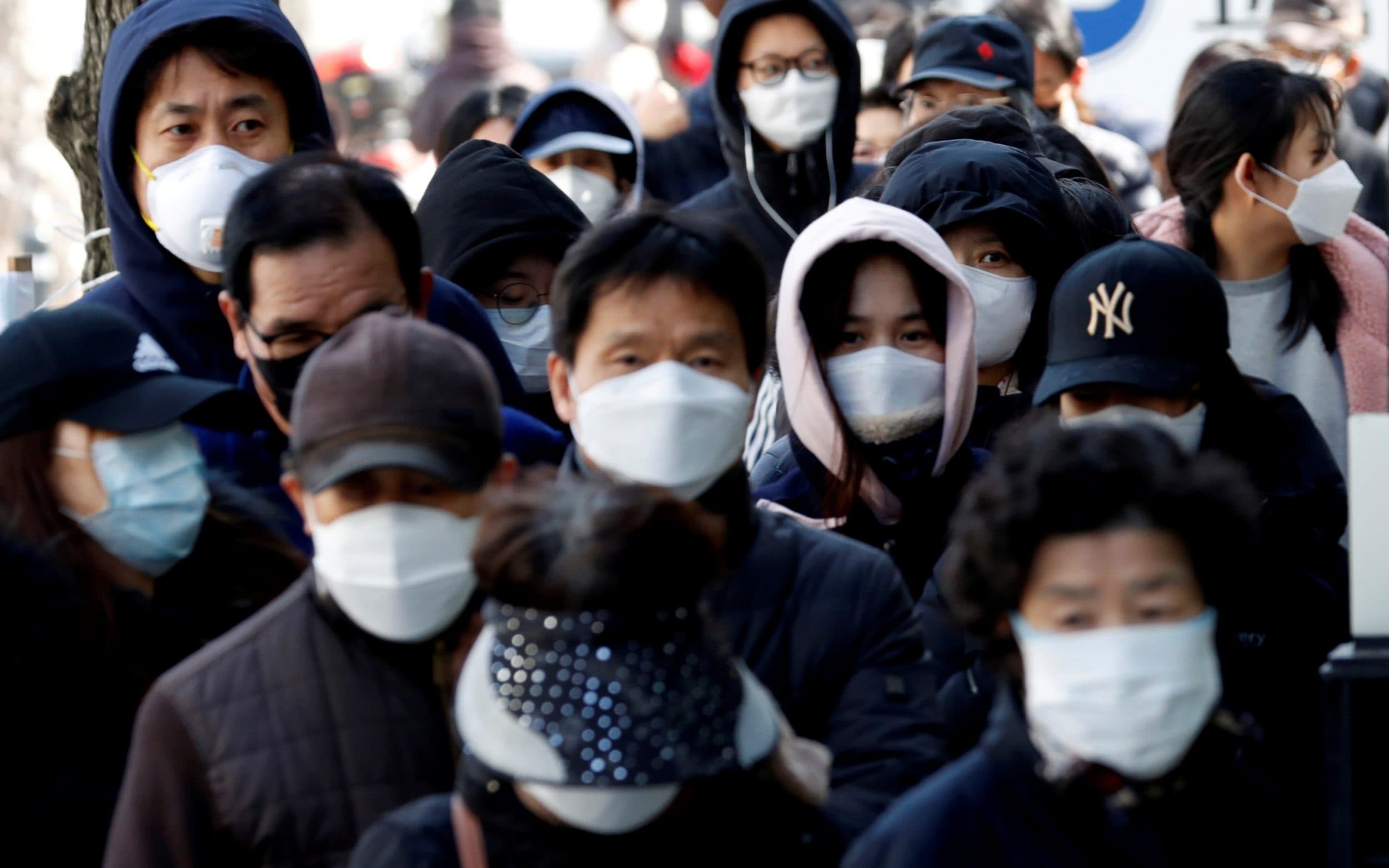Voters wearing face masks and disposable gloves left their home to cast their ballots on Friday, with a number of them queuing in front of polling places near their offices at lunchtime.
SEE ALSO: Disheartening: Six-Week-Old Baby Loses Life To Coronavirus
Having successfully slowed the spread of coronavirus infections recently, South Korea has gone ahead with the quadrennial elections, slated for next Wednesday, to fill the 300-seat unicameral National Assembly.
Early voting got underway on Friday morning, as health authorities reported 27 additional cases confirmed nationwide the day before.
A total of 3,508 polling stations were set up across the country, running from 6 a.m. to 6 p.m. on Friday and Saturday, according to the National Election Commission (NEC).
Voter turnout came in at 5.98 per cent as of 1 p.m., the election watchdog said, marking the highest since the early voting system was introduced in 2013 to enable people to vote in person at any polling station in the country.
Voter turnout is expected to be higher than ever this year, as people vote in advance to avoid crowds amid the COVID-19 pandemic.
“I wanted to vote at a less busier time since I’m worried about the coronavirus, more so because I have a five-month-old child,” said a 36-year old voter in the western Seoul district of Mapo.
With public safety a key priority in this year’s elections, voters and officials followed strict quarantine guidelines to prevent potential infections at polling stations.
Voters were asked to stand at least one metre apart from each other, with officials conducting mandatory temperature checks.
Some officials were seen wearing plexiglass that covered most of their face for added safety.
Voters were advised to wear face masks and were allowed to cast ballots after using hand sanitisers and putting on gloves.
To minimise the possibility of infection, machines were used for face identification.
Fingerprint checks were left out as people were wearing disposable gloves.
The process was longer than usual, but most voters said they felt safe with the precautionary measures.
“It was a bit inconvenient wearing the plastic gloves, but I think the government measures are quite good since everyone’s safety is at stake,” said a woman in her fifties at a polling station in Suwon, just south of Seoul.
“I run an accommodation business and work through the night, so I came to vote early before I get some sleep.
“I read in the news that masks and plastic gloves were mandatory, so it wasn’t really inconvenient,” said a 60-year-old surnamed Kyung on the southern resort island of Jeju.
Among the voters were those aged 18 who cast their first-ever ballots.
“I wanted to celebrate my first-ever vote, so I visited the polling station with my dad,” an 18-year-old with the family name of Kim said at polling station in the southeastern coastal city of Geoje.
The novice voter, however, said the COVID-19 pandemic had affected her plans.
“I wanted to stamp my hand and share the photo on social media, but I couldn’t do that since I was wearing a plastic glove,” she said.
President Moon Jae-in and Prime Minister Chung Sye-kyun were also among those who cast their ballots early.
“It seems that social distancing is being kept at the polling station.
“The public can be assured and come out to vote.
“It would be great if they could make use of early voting today and tomorrow,” Chung told reporters after voting at a polling station in central Seoul.
The early voting system is said to have helped increase voter turnout.
In the 2014 gubernatorial election, the first time it was carried out nationwide, 11.5 per cent opted for early voting.

